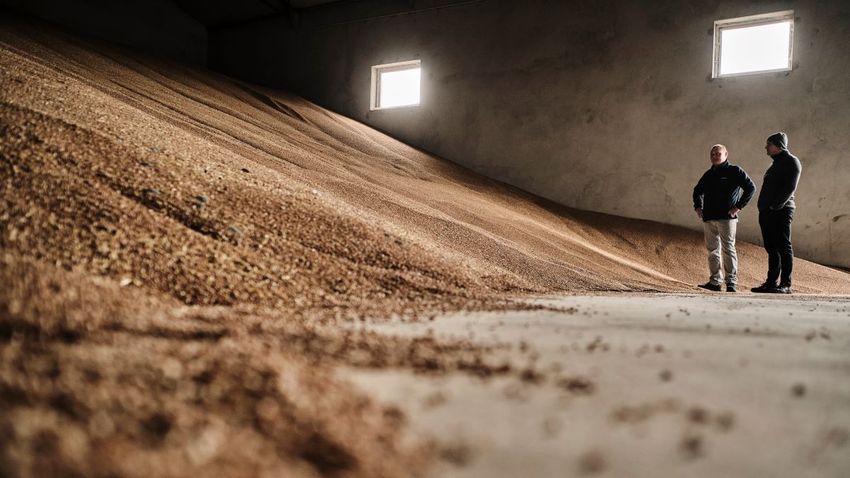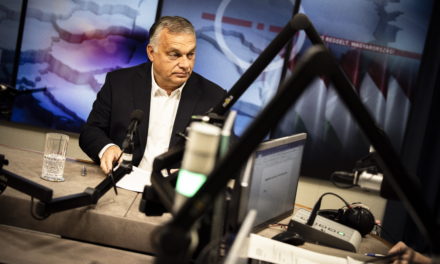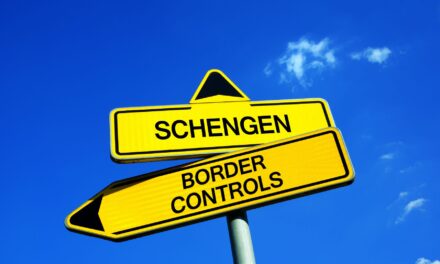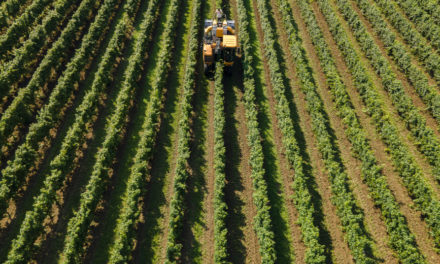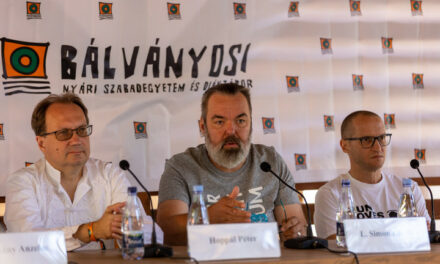Unrestricted Ukrainian cereals, agricultural raw materials and processed foods that arrive in the European Union pose a serious food safety risk, and there is a high probability that most of them are contaminated with genetically modified ingredients.
According to a recent, shocking report by the United States Department of Agriculture, the whole of Ukraine may already be GM-contaminated. Genetically modified ingredients (GM) may be included in agricultural raw materials and a significant part of food grown in Ukraine. It is also impossible to estimate the level of pollution, since Ukrainian laws are incomplete, meaning that the state authorities cannot take action against the illegal GMO trade.
Due to the lack of state control and the cancellation of previously functioning certification systems, the GMO-freeness of food intended for export is checked only by market participants, of course only if it is in their interest
– is revealed in the latest report .
A study on the GMO situation in Ukraine fills a gap, as until now one could only speculate about the use of genetic technologies and biotechnological research.
It is clear from the American report that the Ukrainian cereals, agricultural raw materials and processed foods arriving without restrictions in the European Union really pose a serious food safety risk, and it is highly likely that most of them are contaminated with genetically modified ingredients.
How critical and uncontrolled the spread of GMOs has become in Ukraine is clearly shown by the fact that the production and commercialization of any genetically modified ingredient is currently not permitted, even though the legislation - after obtaining official permits - would allow distributors to grow legally.
Is Ukraine drowning in the illegal GMO business?
Ukraine - similarly to the European Union - basically prohibits the domestic and international distribution of genetically modified products, as well as their production. However, the ban is not universal. In order for someone to grow a genetically modified plant in the territory of Ukraine, they need an official permit. During the official procedure initiated by the manufacturer, the GM product concerned is subjected to a comprehensive examination, including effects on the environment and health, labeling and many other aspects. If everything is in order, Kiev will issue a license for the production and distribution of the given GMO for five years.
Currently, however, no product containing GM ingredients is licensed in Ukraine, and there is no licensing process in progress, meaning that there should not be a GMO crisis in the country.
Despite this, according to the United States' estimates, the illegal GMO seed trade had reached staggering proportions even before the war, i.e. in 2021:
despite the ban, 750,000 dollars worth of genetically modified seeds - about HUF 255 million - arrived illegally at Ukrainian farmers.
Kyiv renounced control over GMO
GM pollution can now practically affect the entire Ukrainian agriculture, only the largest agricultural companies have managed to maintain control in their own territories and in their production and logistics facilities - out of business interest, by operating their own infrastructure - the Washington report makes clear.
The USDA concluded that the unsustainable situation is mainly due to shortcomings in the implementation of the Ukrainian GM law. Among them, the lack of state supervision was highlighted: an illegal GMO trader cannot be held responsible even if he is caught, because the detailed rules necessary for taking action are missing.
State-accredited laboratories are officially operating in Ukraine, where products can be tested, so that, among other things, possible GM involvement is revealed. At the same time, the American report draws attention to the fact that there is no information on the practical operation of these state laboratories.
Not only the enforcement of GMO-freedom and the sanctioning of violations of the law were left out of the Ukrainian regulations in force since 2007.
Another problem is that the licensing procedure takes at least one year in the best case, and the tasks are divided among nearly ten state authorities. As a result of the enormous state bureaucracy, only one GM product has received a license from 2007 to the present, the validity of which expired already in 2018.
GMO control is further complicated by the fact that in Ukraine, a separate law applies to GMOs for commercial, primarily agricultural and medicinal purposes, and separately to GMOs for scientific purposes.
Ukraine thinks only of itself
The only really strictly controlled area is import. Seeds, raw materials and foodstuffs arriving in Ukraine are also checked at the borders. The authorities are investigating whether the ingredients listed on the product correspond to reality.
It is mandatory to indicate "contains GMO" on foods in which at least 0.9 percent of the ingredients are genetically modified.
Unchecked shipments are pouring into Europe
The American report's perhaps most shocking finding is that
In 2014, Kiev practically abolished the state, official supervision of the export of Ukrainian agricultural products by abolishing the official certification system for cereals and certificates guaranteeing quality.
Currently, there is no state inspection or sanctioning mechanism for examining the GM impact of export shipments.
The agricultural giants pay attention, but only when it comes to their premium room
The question arises, what is the guarantee that products from Ukraine do not contain GMOs?
Currently, only product descriptions from manufacturers and distributors are available, the authenticity of which is not checked by anyone. The real ingredients can only be revealed if the customer inspects the product at his own expense or contacts the authorities of the destination country.
In Ukraine today, only those multinational agricultural companies carry out laboratory tests, which check the true GMO-freeness of items intended for export in order to retain customers, but mostly only when it comes to premium products. These spot-checks usually reveal the enormous scale of GMO exposure in the country.
The agricultural giants operate private laboratories in connection with their own grain storage and grain transfer infrastructure, primarily for research and development.
The preservation of GMO-freeness is extremely important, since genetically modified plant and animal products can only be sold much cheaper, and where artificially created plant cultures are grown, traditional cultivation will no longer be possible.
One investigation reveals that Ukraine's GMO-free status is over forever
So far, no comprehensive study has been prepared on the GMO situation in Ukraine, so there was no real information about the extent to which the government led by Volodymyr Zelenskiy allows room for the GMO lobby.
Ukraine has some of the world's best growing areas. These huge land holdings are controlled by Western capitalists through giant agricultural companies with international interests. The interests of these oligarchs are in conflict with the interests of the GMO lobby, therefore, as the USDA states, the black trade and unstoppable spread of genetically engineered products can lead to a permanent, long-term disadvantage if the regulations are not permissive and do not specifically support innovative biotechnology projects.
At the same time, the helplessness of the authorities resulted in the fact that a genetically modified ingredient could end up in a crop storage or processing plant without anyone knowing about it. This is the greatest danger, since after the shipment of GMOs - in the absence of disinfection - the following shipments are also contaminated, which could only be determined by laboratory testing. In reality, however, GM contamination is almost never revealed, which is why contaminated ingredients can be used to make a product whose label says "GMO-free".
So, in most cases, it will never become clear whether the food produced in Ukraine has been contaminated with an ingredient produced by genetic engineering.
The GMO business goes on among real Ukrainian farmers
The USDA pointed out that illegal GMO deals have spread not to large corporations, but to small and medium-sized farms as a result of the Russian invasion.
Although at the beginning of the Russian-Ukrainian war, leading Western politicians opened the borders of the European Union to Ukrainian land shipments on the so-called solidarity corridors, claiming to help Ukrainian farmers, it quickly became clear that
it is not about Ukrainian small producers, but the profits of agricultural companies with Western interests would have been at risk.
Meanwhile, real Ukrainian small farmers, medium-sized enterprises, and family farms receive virtually no support. Those affected are struggling to survive, as production costs have skyrocketed, while many cannot even harvest the crop due to the fighting or mandatory military service. If they do, they can still sell it at depressed prices, since the agricultural giants dominate the entire domestic and foreign market.
Smaller farms see survival in genetically modified seeds. According to the American report, they can reduce their costs by up to 70 dollars per hectare if they sow GMOs. Moreover, the risk is minimal, precisely because they do not have to fear state inspections and any punishment.
The products of Ukrainian small and medium-sized farms are almost without exception purchased by agricultural giants operating in the country, whose aim is to reduce the purchase price as much as possible.
This is how a GM-contaminated ingredient gets into officially GMO-free raw materials and finished products of Ukrainian origin, which, due to the lack of control, reaches anywhere in the world without practically anyone knowing about it.
Zelensky's government rather conserved the unprecedented situation
At the end of August this year, the Ukrainian government adopted new regulations replacing the 2007 law. The new regulation is already harmonized with the directives of the European Union, as Ukraine wants to join the community as soon as possible.
That is why it is shocking that the law adopted in August 2023 will only enter into force in September 2026, until then the well-proven, uncontrollable and unforeseeable illegal practice will remain.
Ukrainian residents are anti-GMO
From overseas, attention was also drawn to the fact that the Ukrainian population clearly rejects genetic technologies in agriculture. According to them, the reason for this is that there has never been any meaningful social dialogue and that centrally regulated educational campaigns would also be needed to change the opinion of Ukrainians. It also became clear to the USDA that the Ukrainians are not even aware of the possibility of allowing GMOs.
And they absolutely do not count on that
despite the desire to be GMO-free and the laws supporting the ban, Ukraine will certainly become one of the strongholds of GMO cultivation after the war,
especially if the leadership in Kiev continues to make decisions with the interests of the United States in mind.
Featured image: Bloomberg/Getty Images

